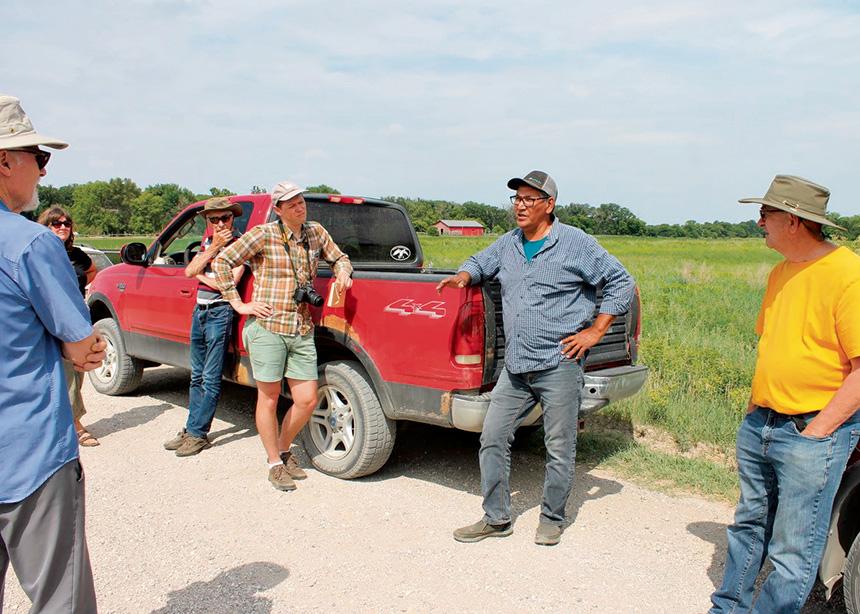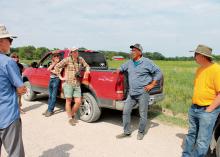Standing at an intersection of mile roads on the more-or-less open prairie near Neubergthal, Manitoba, David Scott explained how members of the Ojibwe Grass Dance Society once called that area home.
“This landscape has changed so much,” he said, noting that he came to the area in his youth for ceremonies.
That spot was one of four stops on a June 17 day-long tour of significant Ojibwe sites on the Mennonite “West Reserve,” an area allotted for Mennonite settlement by the Canadian government in 1873.
The outing, which drew 20 participants, was organized by a grassroots group of Mennonites, in collaboration with Scott, who is an historian and ambassador from the Swan Lake First Nation. The tour was part of ongoing work related to the oral history of a “handshake treaty”—since broken—between the Ojibwe and early Mennonite settlers.
If you want to be informed of upcoming, related events, or assist in organizing them, contact Jonathan Hildebrand at jg.hildebrand@gmail.com.




Add new comment
Canadian Mennonite invites comments and encourages constructive discussion about our content. Actual full names (first and last) are required. Comments are moderated and may be edited. They will not appear online until approved and will be posted during business hours. Some comments may be reproduced in print.